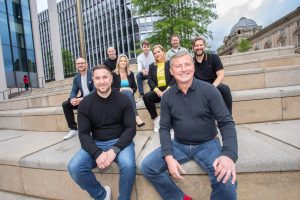Ricardo bids to improve troop safety

AUTOMOTIVE consultancy Ricardo has pinpointed growth in its major markets in the year ahead driven by the introduction of low carbon technology and a need to keep troops safe in Afghanistan and Iraq.
The odd combination underlines the diverse range of projects undertaken by the group, which has a major technical centre based in Leamington Spa.
The group, which last week announced a halving of its pre-tax profits to £3.8m, said that it was confident the year ahead would see growth in markets such as automotive, aerospace and defence plus low carbon and energy saving technologies.
It said its defence operation was being driven by the need to protect UK and US forces in Afghanistan and Iraq against roadside bombs or improvised explosive devices (IEDs) to give them their official name.
This has led to an urgent upgrade programme for existing vehicles and rapid development of new vehicles with enhanced protection and increased mobility.
In the UK, Ricardo has been active upgrading the military Land Rover fleet to improve survivability and co-developing the Ocelot prototype vehicle as part of the Light Protected Patrol Vehicle programme for the Ministry of Defence.
This vehicle is a ground-up design specifically targeted to combat the increasing threat from IEDs without compromising mobility. If accepted by the MOD, Ricardo will be the engineering partner for its production.
On a business level, the Ocelot has global appeal and therefore marketing opportunities would be beyond the UK.
On a more practical level, the group is also helping the MoD improve fuel economy for its fleet of vehicles and thereby reducing costs.
The group said with the high logistical cost of fuelling vehicles in theatre, defence budgets were increasingly being put under pressure. Therefore more cost effective and fuel efficient vehicles would be a big benefit to the military.
Elsewhere, Ricardo said its order pipeline looked favourable for the year ahead with a number of large orders, particularly from Asia.
Many of these were focused on the development of new transmissions and hybrid vehicles.
“We expect that a recovery should occur during the coming year. Fuel efficient transmissions, engines, hybrids and electric vehicles will be the key areas of interest,” said in a results statement.
The group is also hoping to capitalise on the R&D cutbacks engineering and manufacturing firms have made during recession, particularly in the development of low emission vehicles.
It said: “We remain confident demand will return as in-house engineering capacity has been reduced by many manufacturers and the deadlines which will have to be met for manufacturers to retain market share with compliant product remain firm and fixed in time.”
Seemingly at odds with fuel efficiency technology is the group’s continued success in the high performance automotive and motorsport sectors.
In motorsport, it said it would be looking to continue its work on high performance transmission component design in Formula 1, Japanese GT, the Le Mans series and the World Rally Championship.
The company has also been working with Volkswagen on the Bugatti Veyron programme together with a new supercar programme, which started towards the end of the last financial year.
Dave Shemmans, Ricardo chief executive, said the group’s performance in the first six months of the financial year had been in line with its expectations, reflecting the subdued economy.
“We have seen signs of stabilisation and some recovery in key markets, with increased levels of order intake towards the end of the period and an improved pipeline, particularly from China and the US,” he said.
He cautioned against an immediate return to growth but said the group’s strong order book, good pipeline and an apparent market upturn in key areas of the business gave rise to optimism.
“We believe that the second half will benefit from the momentum that picked up towards the end of the first half and enable us to demonstrate further progress,” he said.







